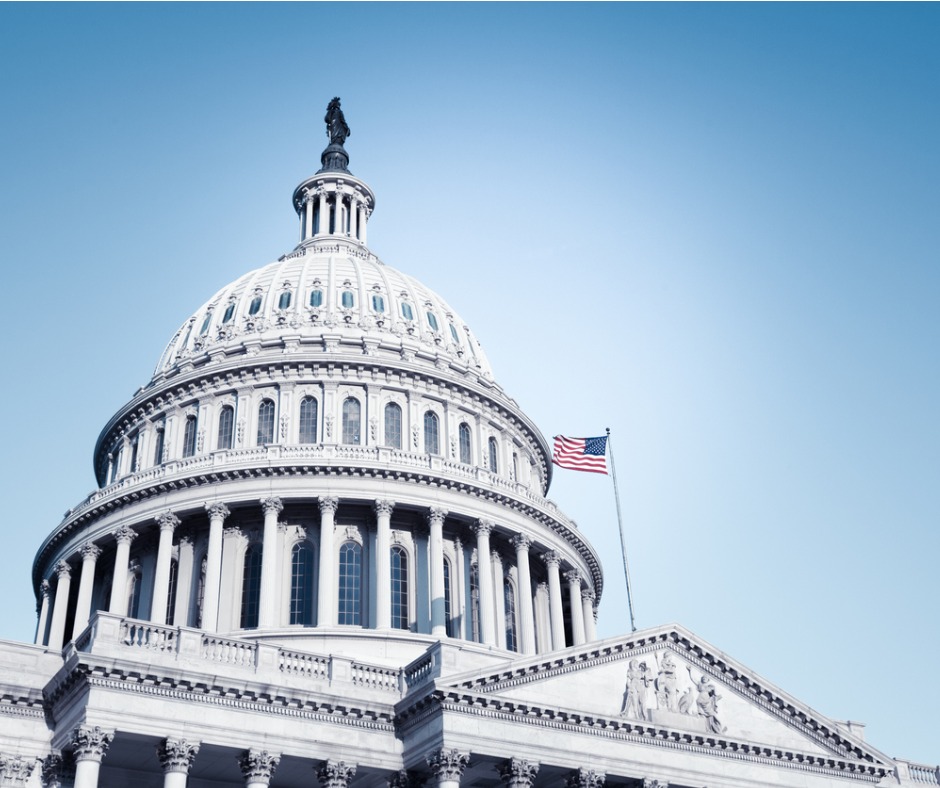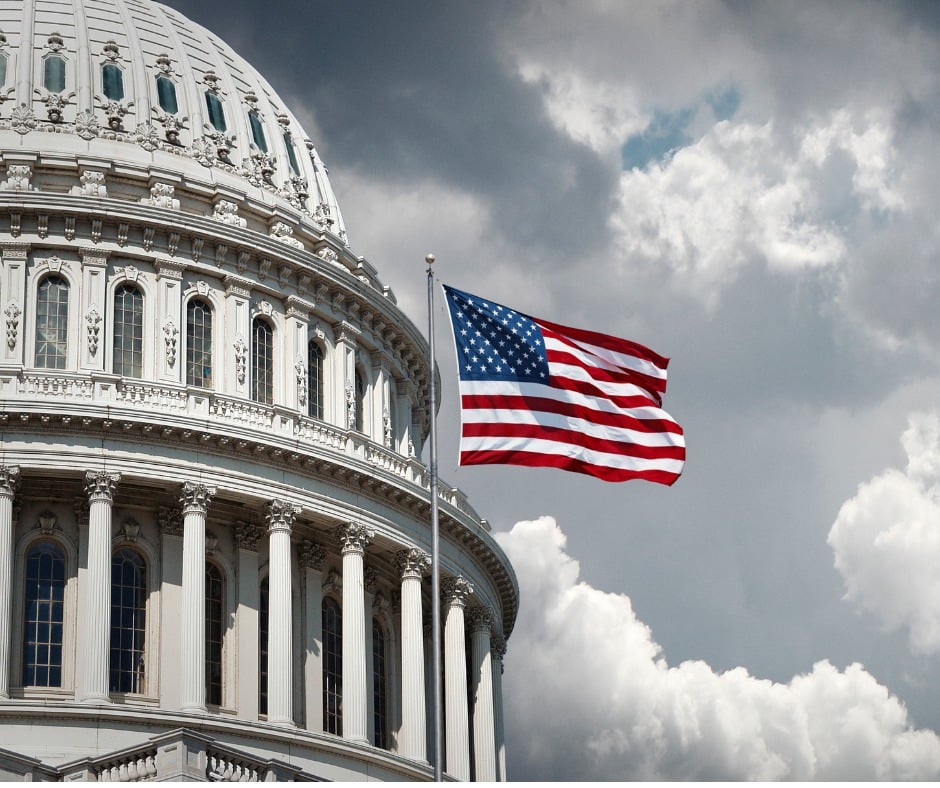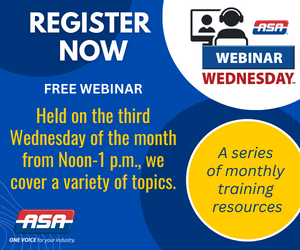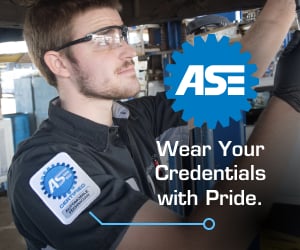What a Trump or Harris Win Would Mean for the Auto Repair Industry
Would a Trump presidency have different implications for auto repairers than a Harris presidency? Let’s look at the clues.
 Unless you live under a rock, you know there’s a major presidential election on November 5. If you live in a swing state, you’re probably reminded about it every time you blink. It can be hard to sift through all the noise and grandiose political rhetoric to decipher the policy differences between the two main candidates, Vice President Kamala Harris and former President Donald Trump, that would answer the question, “Would my automotive repair business fare better under a Trump or Harris Administration?”. However, each candidate has left a trail of clues about policies they might enact that could indirectly bear ramifications on the independent auto repair industry.
Unless you live under a rock, you know there’s a major presidential election on November 5. If you live in a swing state, you’re probably reminded about it every time you blink. It can be hard to sift through all the noise and grandiose political rhetoric to decipher the policy differences between the two main candidates, Vice President Kamala Harris and former President Donald Trump, that would answer the question, “Would my automotive repair business fare better under a Trump or Harris Administration?”. However, each candidate has left a trail of clues about policies they might enact that could indirectly bear ramifications on the independent auto repair industry.
The policymaking powers of the President of the United States of America are limited by Congress (we’ll get back to that later). At the same time, laws passed by Congress often cede responsibility to federal agencies for filling in the details, which can range from the nitty-gritty to the broadly impactful. As the official tasked with directing federal agencies’ enforcement of federal law, the president enjoys “wiggle room” to direct federal policy. For example, Congress passed the Clean Air Act (CAA) in 1970, which, among many other changes, required the Environmental Protection Agency (EPA) to create a list of hazardous air pollutants and determine emission standards for each.
The cabinet secretaries nominated by the president – and confirmed by the U.S. Senate – wield significant influence on agency policymaking as well. Harris has promised to appoint at least one Republican to her cabinet. Picking a Republican for EPA Administrator seems highly unlikely because her nominee will need to be someone she trusts to handle some of the most politically contentious regulatory battles. Current EPA Administrator Michael Regan would make an attractive pick. He and Harris enjoy a close relationship and he would not need to undergo a Senate confirmation process, which could prove critical in the likely scenario that Republican senators secure a majority. Consistency might also appeal to Trump in this role. Andrew Wheeler – Trump’s last EPA head – was highly effective at implementing Trump’s deregulatory agenda, and he has already made it clear he’s interested in returning to the role.
The Transportation Secretary selection also holds importance to the automotive repair industry. A Republican, like Miami Mayor Francis Suarez, could fit the needs of a Harris transportation agenda. For Trump, speculation exists around Congressmen Garret Graves (R-LA) and Sam Graves (R-MO) (shared last name highly coincidental) lead the pack of contenders. Both men boast extensive experience on the House Transportation & Infrastructure Committee. The two also enjoy particular expertise in aviation issues, which could mean that the Department of Transportation’s automotive safety programs might not receive as much prioritization as they do under President Biden.
The CAA provided President Biden the authority to instruct the EPA to establish new automotive emissions standards, finalized last spring, that will lead to electric vehicles (EVs) comprising around fifty percent of all new vehicles sold in the U.S. by 2032, according to government estimates. Repairers understand the challenges a sudden influx of EVs poses to their business. Trump vows he will rescind this rule and cut EV production subsidies, while Harris has not commented on any changes she might seek. Don’t hold your breath waiting for her to roll it back though. This contrast may earn Trump points among the independent repair shop community, but a critical mass of Republican members of Congress could stand in the way of slamming the brakes on the EV “revolution”. Many of these officials voted against EV subsidies, but now oppose cutting these investments because they have generated economic development and good paying jobs in their districts.
Public policies other than those affecting EV fleet density can also influence a repairer’s profit potential. Republicans in the U.S. House of Representatives passed a bill that would have made significant cuts to spending on programs that affect the growth and skills of the technician workforce (Democrats in the Senate blocked it). Trump would have likely signed that bill into law. Would the benefits of a more gradual approach to EV adoption outweigh the cost of exacerbating an already strained technician hiring market?
With regards to the overall benefit to independent auto repairers, one candidate’s attractive policy leanings on a collection of issues may find themselves offset by less attractive positions in other areas. A Trump presidency might result in a more favorable corporate tax environment. At the same time, trade policies, like the ones favored by Trump, that place high tariffs on imports and set “made in America” requirements could increase aftermarket parts costs and delays in parts availability.
The current political environment lends itself to minimal predictability. Factors beyond which presidential candidate wins and their policy positions – on which both candidates have provided few details – will matter greatly. Whoever becomes president will likely contend with a U.S. Senate or House controlled by the opposite party, wrestling away the president’s negotiating leverage. Stakeholders will have to compromise. No one knows where those compromises will take place. No matter who wins, it will remain critical that ASA and its members engage constructively with them to ensure independent repairers’ interests are protected.
Want to keep up with ASA’s advocacy activities and learn how to get involved? Sign up for Taking the Hill alerts at https://www.asashop.org/asa-action-network/
Bob Redding is the Automotive Service Association’s Washington, D.C., representative. He is a member of several federal and state advisory committees involved in the automotive industry.









